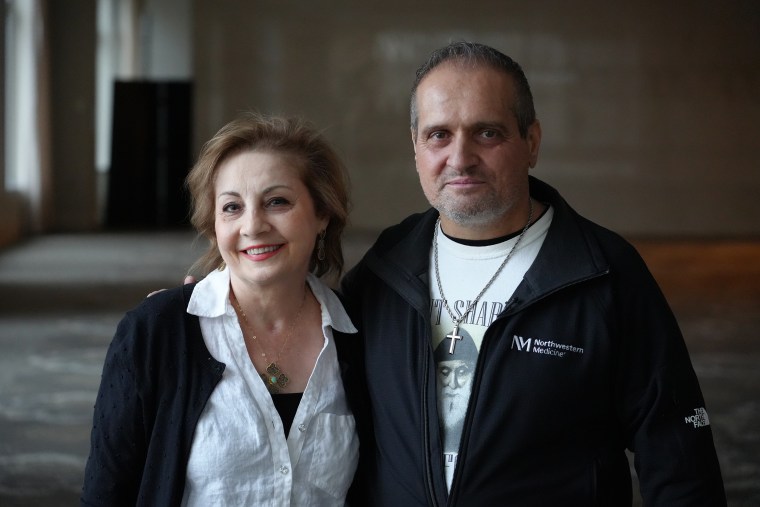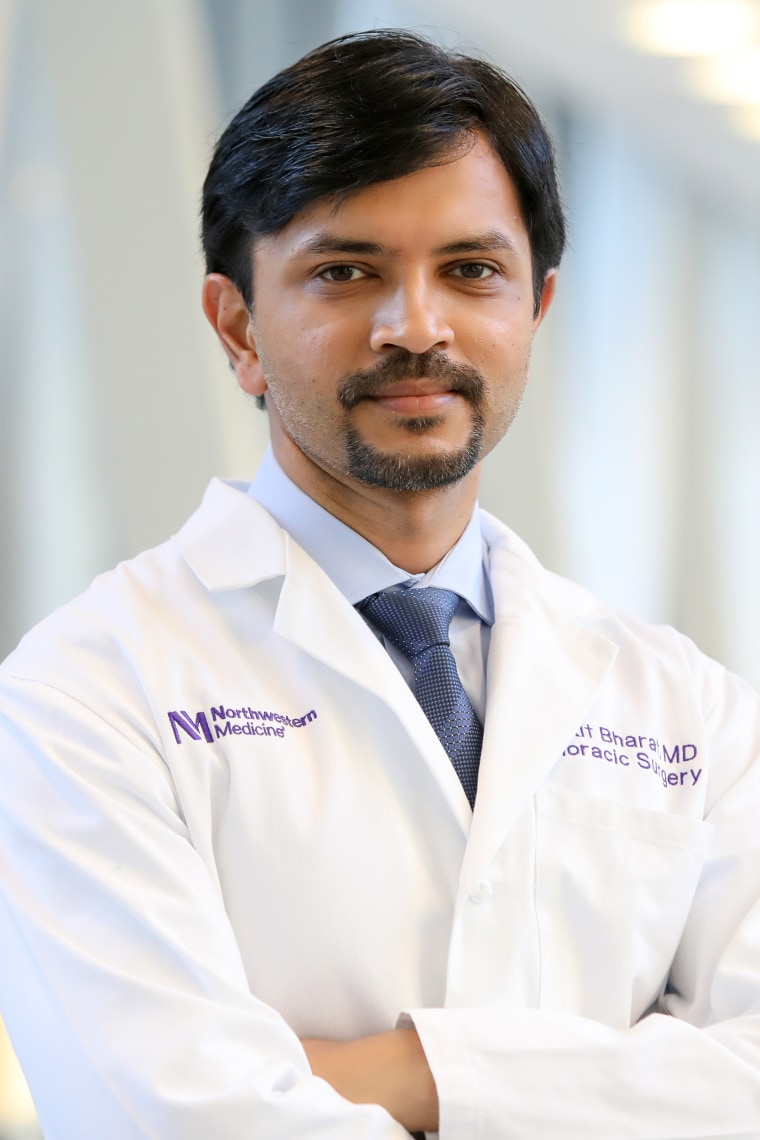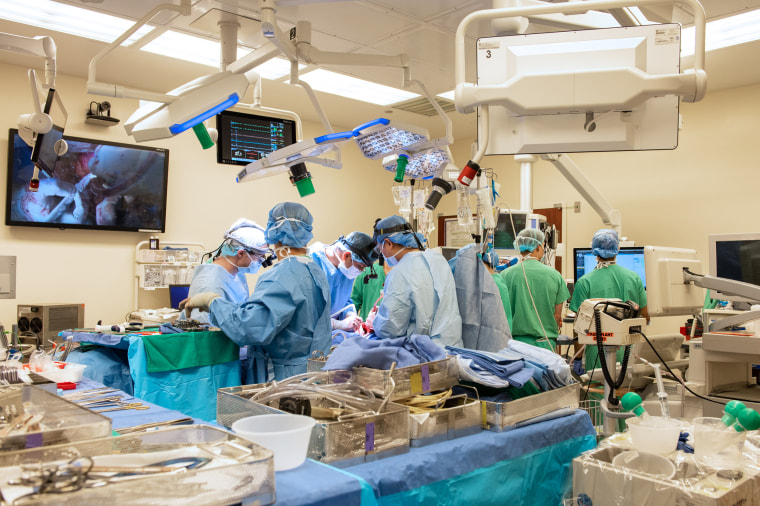A novel treatment for certain late-stage lung cancers has succeeded in the first two patients to undergo the operation.
Using knowledge learned during the Covid pandemic, surgeons at Northwestern Medicine in Chicago successfully performed double lung transplantations in two patients with stage 4 cancer. Both patients are alive and well.
When the cancer spreads from one lung to the other, and doesn’t respond to standard treatments, including radiation and chemotherapy, patients are typically left with no options.
That was the case for Albert Khoury, 55, of Chicago, who was diagnosed with lung cancer in early 2020. Initially, his tumors were concentrated in just one lung. But despite two rounds of chemotherapy, the cancer had spread to the other lung. It was stage 4.
“They told me, ‘Just spend time with your siblings. You have a few months to live,’” he said.
But in September 2021, Khoury became the first person with stage 4 lung cancer to receive a double lung transplantation. The novel treatment has since been performed on a second patient whose cancer had also spread to both the lungs, a woman named Tannaz Ameli, 65.

The approach was the last resort for both Khoury and Ameli.
“If all the options have been exhausted, only then are we going to consider this,” said Dr. Ankit Bharat, the chief of thoracic surgery and the director of the Northwestern Medicine Canning Thoracic Institute.
Lung transplants for cancer patients have historically involved replacing one lung at a time. The technique comes with some pretty hefty risks: The remaining cancerous lung can contaminate the new lung with cancer and the incisions can cause cancer cells to leak into the bloodstream.
Bharat and his team at Northwestern had a different approach.
By taking both cancerous lungs out of the body at the same time and replacing them with two healthy transplanted lungs, surgeons can significantly reduce the risk of cancer cells contaminating the new organs or other parts of the body. While the lungs are out of the body, patients are hooked up to a heart-lung bypass machine to keep them alive.
The approach doesn’t apply to all stage 4 lung cancer patients, but only for those in whom cancer has spread from one lung to the other but has not spread beyond that.

“Before we even enter the operating room, we’ve already established with a very high level of certainty that there is no cancer outside the lungs,” Bharat said. “If the cancer is already outside the lung, we cannot do these double lung transplants.”
It was during the pandemic that the Northwestern surgeons realized they could do this type of surgery. The first double lung transplants in Covid patients were performed at the same hospital.
“We learned that it was possible to take out heavily diseased lungs that have tons of bacteria in them, which most Covid patients had, carefully without spreading it into the bloodstream,” Bharat said. “So that helped us learn about this approach, which I hope is going to be very helpful for cancer patients.”
Still, the procedure doesn’t come without risks.
“Finding the right patient will be the challenge. It’s a big operation, so you do need someone who can tolerate both the surgery and immunosuppressive therapies you need after the transplant,” said Dr. William Dahut, the chief scientific officer of the American Cancer Society. It’s too intensive to be used to extend a person’s life by just a bit, and it carries too big a risk of complications, he added.
Northwestern’s program, called Northwestern Medicine’s Double Lung Replacement and Multidisciplinary Care, or DREAM, plans to track the first 75 cancer patients to receive a double-lung transplant. They hope what they learn from these patients in the long term will help other surgery centers be able to carry out the procedure as well.

Bharat said he anticipates there will be at least some recurrences of cancers, but believes that in most cases, the operation will allow most of the patients to live cancer-free.
“Even if we could take a few patients and give them a new life, that’s quite profound,” he said.
Follow NBC HEALTH on Twitter & Facebook.
